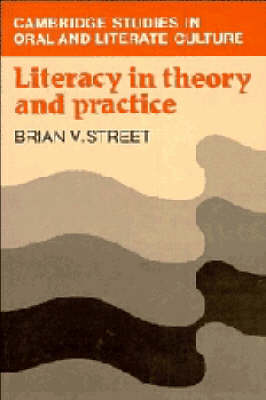Cambridge Studies in Oral and Literate Culture
1 total work
This book challenges conventional theories about literacy, and the practices which often arise from them. It attempts to provide a new perspective through which the variety of literacy practices across different cultures can be viewed and from which the practical issues that arise in specific literacy campaigns and programmes can be approached. Dr Street first examines the explicit theories developed about literacy within different academic disciplines, on the premise that these underlie statements about literacy within development campaigns and in everyday usage. He analyses in detail arguments about the 'technical' and 'neutral' nature of literacy and its supposed 'cognitive' consequences in the work of some psychologists, linguists and social anthropologists. He claims that these amount to a coherent but flawed model that he terms the 'autonomous' model of literacy. Against this he poses an 'ideological' model, one which pays greater attention to the social structure. He attempts to bring together recent shifts in this direction in writings on literacy and to construct a coherent model for further work.
